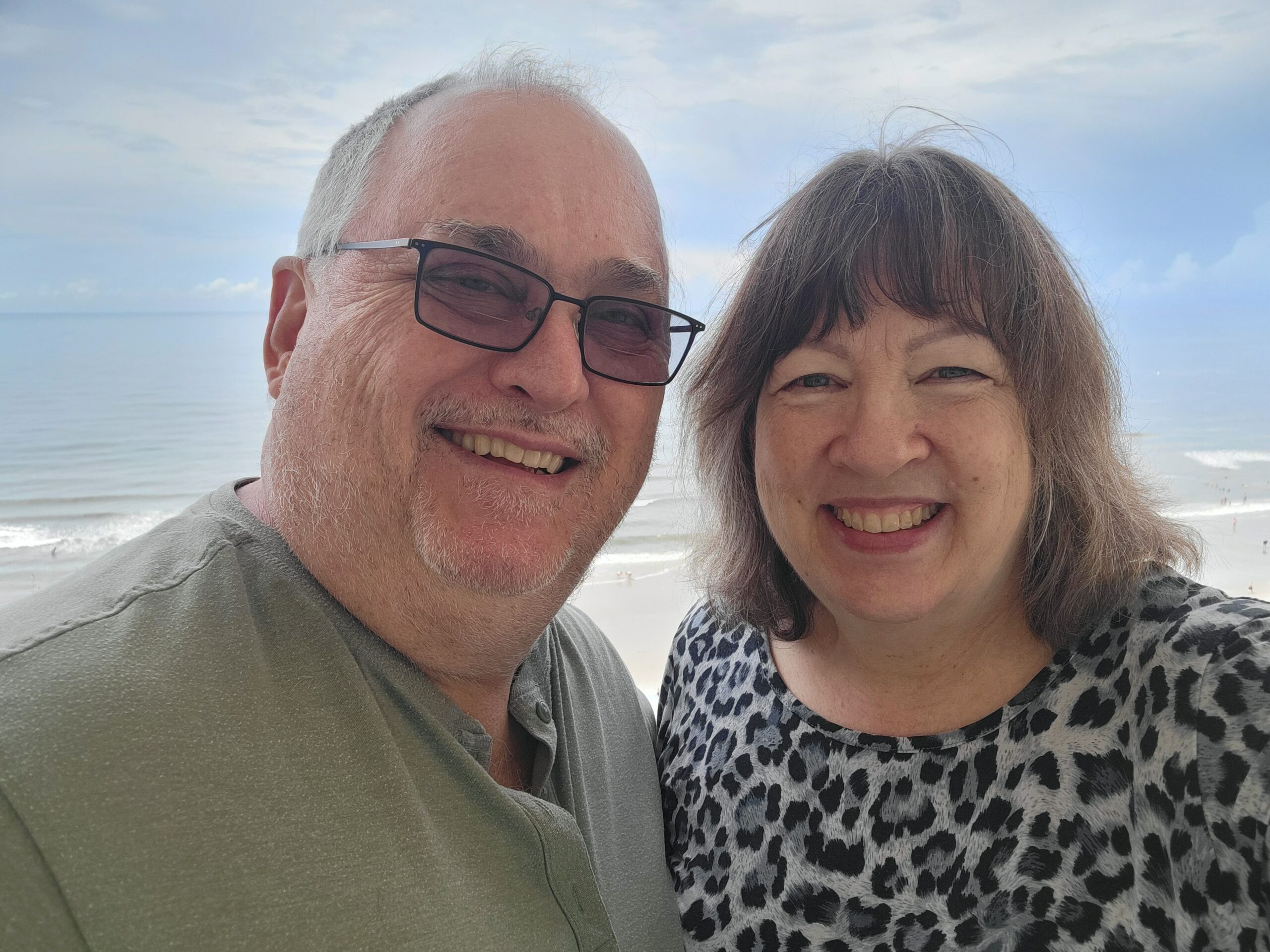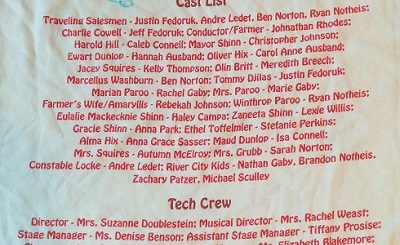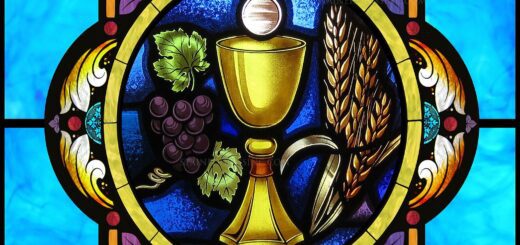The Fullness of the Holy Spirit

“The Fullness of the Holy Spirit” – August 17th, 2025
Luke is sometimes referred to as the theologian of the Holy Spirit because he uses the Greek phrase pneuma hagion (“Holy Spirit”) significantly more often than the other gospel writers. Luke places a strong emphasis on the Holy Spirit’s active role in the life of Jesus – in his conception, baptism, temptation, and empowerment for ministry. He also emphasizes that the Holy Spirit’s work continues after Jesus’ resurrection and ascension through us, the church. The Holy Spirit empowers us not only for salvation or sanctification, but also for service and mission.
Today we are going to look at how Jesus fulfilled his mission in the fullness of the Holy Spirit. Remember Jesus’ mission in Luke chapter 4, where he read from the book of Isaiah? “The Spirit of the Lord is upon me, because he has anointed me to bring good news to the poor. He has sent me to proclaim release to the captives and recovery of sight to the blind, to let the oppressed go free, to proclaim the year of the Lord’s favor.”
We get to continue Jesus’ mission in proclaiming the year of the Lord’s favor because, in Christ we, too, have been given the Holy Spirit. Ephesians 5:18-20 instructs us, “Do not get drunk with wine, for that is debauchery; but be filled with the Spirit, as you sing psalms and hymns and spiritual songs among yourselves, singing and making melody to the Lord in your hearts, giving thanks to God the Father at all times and for everything in the name of our Lord Jesus Christ.”
When our oldest son, Peter, was around two years old, he had a favorite word. Whether I was singing Itsy Bitsy Spider or Paul was tickle-wrestling him on the floor, at the end of anything he really enjoyed, he would pause and ask, always to our delight, “Again!” We are commanded to be filled with the Spirit. The English phrase “be filled” here inadequately conveys the continuous nature of the original Greek. When it comes to the fullness of the Holy Spirit, God delights when we pause and ask, “Again!” To be filled with the Spirit is to continually surrender to God and to continually be willing to do whatever the Spirit directs us to do.
We can ask God to fill us again with the Holy Spirit – “Again!” And, it turns out there are also some practical things we can do that help us to live and think and act in the fullness of the Holy Spirit:
- we can express joy to God from the depths of our being,
- we can cultivate a spirit of gratitude that permeates every aspect of life,
- and we can praise God for his presence and goodness in both positive and challenging circumstances!
Italian priest and theologian, Raniero Cantalamessa, explains that “the Christian life is not only a matter of growing in personal holiness, it is also ministry, service, and proclamation. To accomplish these tasks we need ‘power from on high,’ the charisms or, in a word, a profound Pentecostal experience of the Holy Spirit.”
Luke is careful to consistently call us into action, to do the will of God. Jesus said in Luke 11:13, “If you then, who are evil, know how to give good gifts to your children, how much more will the heavenly Father give the Holy Spirit to those who ask him!” But notice that although God does give the Holy Spirit to all who ask, to all who call on the name of the Lord, it is never for self-promotion or spiritual power. God gives us the Holy Spirit to equip us for service and mission.
Luke writes about Jesus’ last words to his disciples before his ascension in Acts1:1-8 – “In the first book, Theophilus, I wrote about all that Jesus did and taught from the beginning until the day when he was taken up to heaven, after giving instructions through the Holy Spirit to the apostles whom he had chosen. After his suffering he presented himself alive to them by many convincing proofs, appearing to them during forty days and speaking about the kingdom of God. While staying with them, he ordered them not to leave Jerusalem, but to wait there for the promise of the Father. ‘This,’ he said, ‘is what you have heard from me; for John baptized with water, but you will be baptized with the Holy Spirit not many days from now.’ So when they had come together, they asked him, ‘Lord, is this the time when you will restore the kingdom to Israel?’ He replied, ‘It is not for you to know the times or periods that the Father has set by his own authority. But you will receive power when the Holy Spirit has come upon you; and you will be my witnesses in Jerusalem, in all Judea and Samaria, and to the ends of the earth.’”
Notice how Jesus connects his promise to restore the kingdom with the promised Holy Spirit. There are all kinds of views in the church about the kingdom of God and restoration.
Dr. Mark D. Roberts, Senior Fellow for Fuller’s Max De Pree Center for Leadership, points out that “the kingdom of God has been equated with all sorts of things in the last two millennia. Some have claimed that it is heaven, and that Jesus was saying, in so many words, ‘Now you can go to heaven when you die.’ Others have understood ‘the kingdom of God’ as referring to the Church. From their perspective, Jesus announced the beginning of the age of the Church. Still others have seen the kingdom of God as a world infused by divine justice. They have taken Jesus’ announcement as a call to social action. In recent times, ‘spiritually’ inclined people have reduced the kingdom of God to inner awareness of one’s divinity. Like the ancient Gnostics, they understand the good news of the kingdom to mean ‘You are divine.’ None of these renditions of the kingdom of God hits a historical home run, although the first three are in the ballpark, at least. But all of them fail to take seriously … what Jesus actually says about the kingdom of God … This kingdom was not a place where God reigns, but rather the reign of God itself – God’s rule, authority, and power. The reign of God, Jesus says, is at hand.”
Jesus proclaimed the kingdom of God as both present in his ministry and also as future, that which is still to come in greater fullness and glory. We often refer to it as the already-and-not-yet kingdom because it is already, but not yet fully, here. Professor of Theology and Mission Amos Yong suggests that “perhaps there is a middle ground between thinking either that the kingdom proclaimed by Jesus is a spiritual reality located in the coming future or that we are called to be revolutionaries who would overthrow the ruling empires of our world today. Maybe this middle ground involves our being open to receiving the Spirit’s empowerment so that we also might be agents who hasten the kingdom, which is in some respects already present, even if it is in other respects still to come.”
To better understand the fullness of the Holy Spirit, we’re going to look more closely at one of Jesus’ many healings in the Gospel of Luke. In this healing, we discover that Jesus heals, touches, and restores individuals, families, and communities.
Luke 5:12-16 – “Once, when he was in one of the cities, there was a man covered with leprosy. When he saw Jesus, he bowed with his face to the ground and begged him, ‘Lord, if you choose, you can make me clean.’ Then Jesus stretched out his hand, touched him, and said, ‘I do choose. Be made clean.’ Immediately the leprosy left him. And he ordered him to tell no one. ‘Go,’ he said, ‘and show yourself to the priest, and, as Moses commanded, make an offering for your cleansing, for a testimony to them.’ But now more than ever the word about Jesus spread abroad; many crowds would gather to hear him and to be cured of their diseases. But he would withdraw to deserted places and pray.”
In the ancient near East, leprosy was a feared disease. That term covered a wide variety of skin diseases, but until someone was declared healed and clean, they were cast out of their homes, families, and communities. Jesus did three significant actions in this account.
The first significant action was that Jesus healed. He stretched out his hand, touched the man covered with leprosy, and said, “I do choose. Be made clean.” We don’t know exactly how Jesus did it, but the person’s leprosy left him, immediately. Jesus healed him!
The second significant action was that Jesus touched. By touching a person covered with leprosy, Jesus transgressed all of the conventions of his day – biblical, legal, medical, and social. The very heart of this story is that Jesus touched someone who was literally designated untouchable. Although leprosy involves nerve damage, it can be very painful. And yet the greatest suffering of all was being completely separated from all human contact. This week our Pastoral Care and Leadership Team went on a retreat, in order to rest, to listen to God and one another, and to plan. I invited Mariana, our beloved, wise, and experienced in-house spiritual director, along (she was a very welcome, good surprise!), and she guided us in awakening all of our senses to God’s love. On the day in which we focused on touch, being held in God’s hands, she shared a quote from Ignatius of Loyola that is so pertinent to how Jesus interacted with this sufferer. Ignatius said, “Love ought to manifest itself more by deeds than by words.” Jesus could have just chosen to heal the man. Jesus could have just stretched out his hand toward him. Jesus could have just spoken the healing word. And yet, Luke makes sure we realize that Jesus also touched him.
Studies have shown that “sensory deprivation [resulting, for example, from the reduction or removal of human touch] is a widely prevalent condition that leads to various health-related consequences and is also an important cause of disability worldwide.” Biblical commentators Shelly Matthew and Barbara Reid name Saint Francis of Assisi, Saint Catherine of Siena, missionary Father Damien, and Mother Teresa of Calcutta as examples of saints who “not only exemplify the healing power of touch but also testify to the profound effect it has on their own lives as they become one with the persons to whom they minister.”
N. T. Wright describes the scene, “So much sheer love is conveyed by touch … And now Jesus reached out and touched him. We can only imagine the sense of awe and joy that this brought to the leper … In theory, this action should have made Jesus both ceremonially unclean and liable to contract the actual disease. But, as with so many of his healings, it worked the other way round. His cleanness, his healing power, ‘infected’ the man, just as the love and grace of his touch must have gone through his whole personality like a hot drink on a cold day.”
Jesus does more than show compassion to this sufferer; he makes himself part of the leper’s uncleanness, so that the leper may be cleansed. This reminds me of what the apostle Paul would later write in 2 Corinthians 5:21 – “For our sake he made him to be sin who knew no sin, so that in him we might become the righteousness of God.” For our sake, Jesus came into our sinful and unclean world. 1 Peter 2:24 tells us that “He himself bore our sins in his body on the cross, so that, free from sins, we might live for righteousness.” Jesus suffered our world’s sin and uncleanness, in order to redeem it! In Jesus we become God’s righteousness, so that we can be fully alive!
The third and final significant action was that Jesus restored. Yes, Jesus healed this man of his skin condition. And yet, he knew that his healing would be incomplete unless he also restored him as a full and accepted member of his home, his family, his village, and his community. That is why he sent the now healed man to the priest, the only one who was qualified to declare the man cleansed and fit to be reintegrated into the community.
Let’s not miss what happened after this healing – “Now more than ever the word about Jesus spread abroad; many crowds would gather to hear him and to be cured of their diseases.” And how does Luke describe Jesus’ response to this? What would we expect to happen? If someone today does a miraculous healing in the name of Jesus and that brings crowds and crowds of people, what do we expect to happen? I would expect the minister to have more meetings, to sell more books, to go on a tour. But what does Jesus do? “He would withdraw to deserted places and pray.” Jesus models for us the self-care that is essential for anyone who wants to be a healer for others. I often come back to Jesus’ invitation in The Message translation of Matthew 11:28 – “Are you tired? Worn out? Burned out on religion? Come to me. Get away with me and you’ll recover your life. I’ll show you how to take a real rest.”
As we see in how Jesus modeled healing for us, there is so much more to divine healing than just biomedical intervention, as wonderful as that is! 2 Corinthians 3:17 assures us that “where the Spirit of the Lord is, there is freedom.” Dr. Bob Schuchts, in his book Be Healed, describes Jesus’ visible healings and miracles as “awesome manifestations that build our faith in what we cannot see with our natural eyes. But more than anything, they serve as signs of a greater healing – our redemption from the effects of original sin … Everywhere the Holy Spirit is given permission in our hearts, the love of God heals us and bring us and others into greater freedom.”
Let’s consider today how we at Liberty Vineyard Church can fulfill Jesus’ mission through Jesus’ ongoing healing ministry. Let’s remember that there is no magic healing formula. To participate in Jesus’ healing ministry requires that we surrender our own wills and agendas to God, welcome and receive the fullness of the Holy Spirit, and choose to be willing to participate however God directs us. This is why the founder of our Vineyard Movement of churches, John Wimber, famously said, “Faith is spelled r-i-s-k.” He emphasized that true faith involves taking risks, stepping out of our comfort zones, and aligning ourselves with biblical examples of faith, like what Jesus did.
Let’s get ready to take some risks and step out of our comfort zones by considering our neighbors, those whom we live near and among. Who are the poor, the captives, the blind, and the oppressed who need to receive the good news of Jesus? I did an AI search this week to identify these seven groups as the most vulnerable populations within a five-mile radius of our church location. Pay attention to any group that the Holy Spirit highlights to you and respond accordingly:
- Individuals and families experiencing poverty
- Neighbors experiencing housing insecurity
- Seniors / older adults
- Individuals with disabilities
- Children in foster care
- Neighbors lacking access to needed healthcare
- Individuals with substance abuse issues
Today the church is sending you and me out as agents of transformation to radiate the fragrance of Jesus Christ in our spheres of influence and as we go about our days. In the fullness of the Holy Spirit, may we heal, touch, and restore individuals, families, and communities, as Jesus did. There are plenty of people in our community who need Jesus’ healing and are waiting for us, the church, to provide it. In two weeks’ time we will have an opportunity to share with one another at Testimony Sunday. One of the exercises Mariana had us do regarding sight, seeing God’s beauty, involved considering what we look at from a different perspective. The Lord spoke to my heart as I had to tilt a picture a certain way in order to understand what was going on. As I pondered my picture, this phrase came to mind, formed by the letters in the word “tilt” – Transformed In Love Together. Jesus sends us out as agents of transformation to heal, touch, and restore, not remotely, but together with those to whom we are sent. Come prepared to share some glimpses of God’s love in action, some God-stories of how your or someone else’s life was transformed because you showed up, in the fullness of the Holy Spirit.




